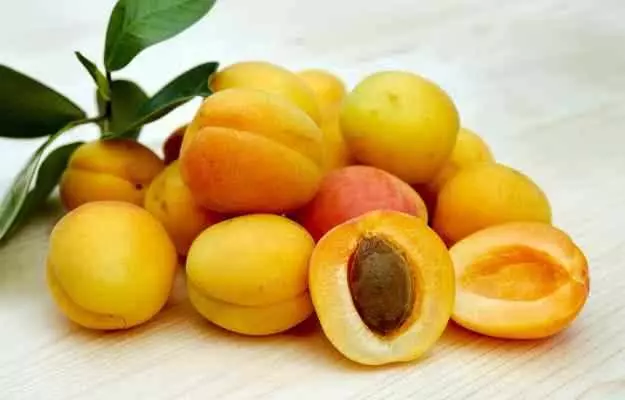Apricot is an Asian summer delicacy which is believed to have been originated in China. This small and sweet fruit is rich in fibre and an excellent source of vitamins and minerals. Additionally, it is a good source of beta-carotene which gives apricot fruit a distinct golden orange color. In fact, Greeks named them “Golden eggs of the sun” when they first brought apricots to Europe
The apricot fruits are approximately 4 to 5 cm in diameter and weigh around 35 g. It grows well in mountain slope soils. Temperate regions, especially Mediterranean regions are best suited for its cultivation. Turkey is the largest producer of apricots, accounting for 27% of the world’s total apricot production. In India, apricots are mainly cultivated in Jammu and Kashmir, Himachal Pradesh and the hills of Uttarakhand.
Apricot is considered to be one of the healthiest fruits. Dried apricots are a rich source of iron. So if you are anemic, having dried apricots can be beneficial. Egyptians used dried apricots to prepare a special drink called Amar-al-din to enjoy its varied health benefits. Apricot oil is very beneficial for the skin and hair.
Some basic facts about Apricot:
- Botanical name: Prunus armeniaca
- Family: Rosaceae
- Common Name: Apricot in English, Khubani in Hindi
- Sanskrit name: Andhigraha
- Parts used: Fruit, seeds
- Native and geographical distribution: The origin of apricots is not clearly known. It is believed that the Chinese were the original cultivators of this fruit. However a few believe that Armenia was the first to grow them. Temperate regions, especially Mediterranean regions are best suited for apricot cultivation. Apricots are also cultivated in Turkey, Italy, Russia, Spain, Greece, USA, and France


































